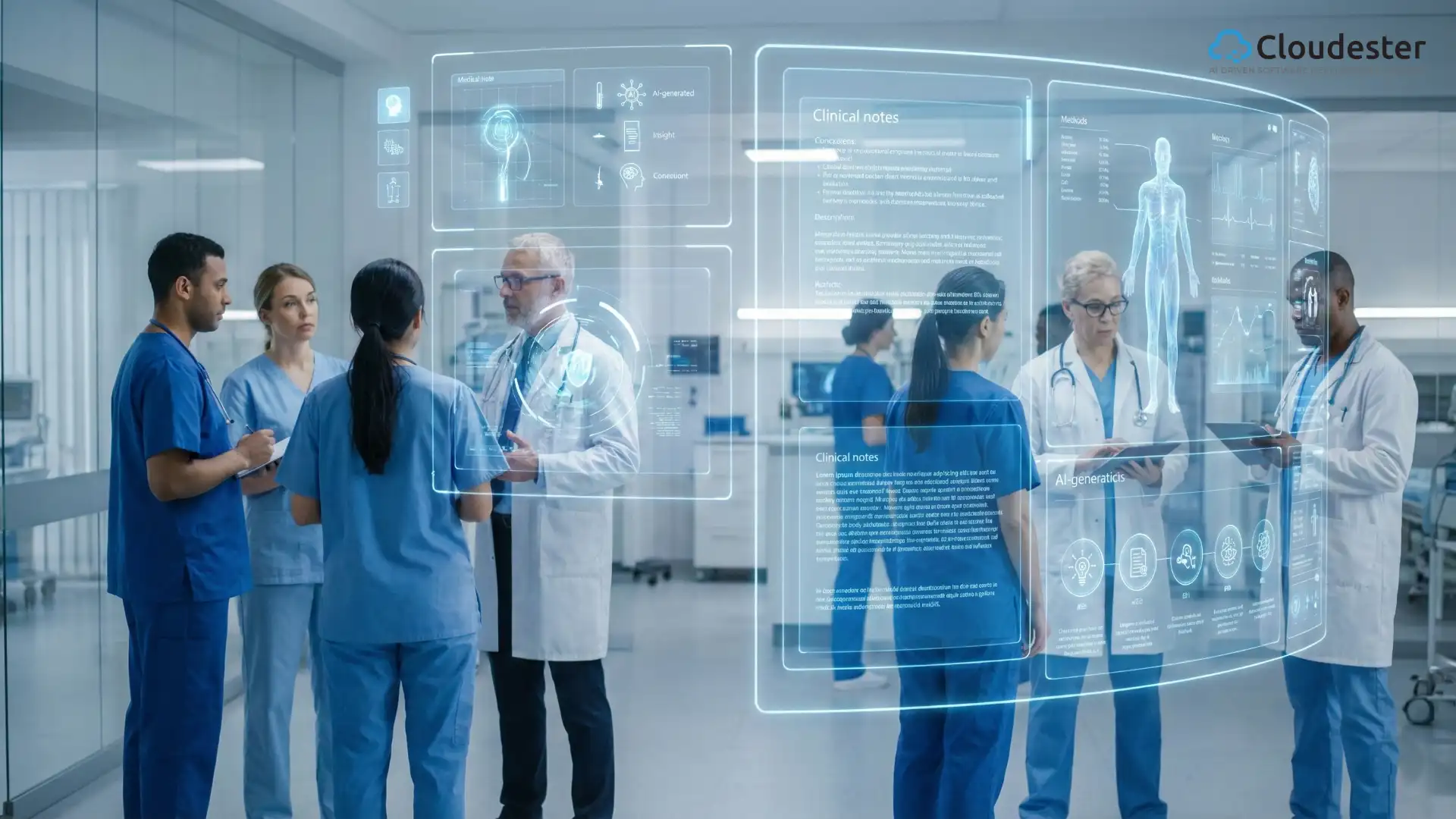OpenAI Impact on Software Development: How OpenAI Models Transform AI Software Development

Image Credit: openai.com
This blog explains how OpenAI transforms software development. We explore new ideas, tools, and workflows that change how developers work. In this blog, we show how OpenAI and its tools boost code quality and productivity.
Introduction – The New Era of AI-Powered Development
OpenAI changes coding. How OpenAI transforms software development by speeding up work and reducing errors. Today, many developers use AI tools like GPT-4 and ChatGPT. These models create code, review designs, and find bugs. In this blog, you will learn why AI is a big help for teams and individual coders.
A few years ago, writing code meant long hours. Now, AI tools help write code faster. OpenAI in software development cuts time to test ideas and debug code. This change matters for teams and companies. Faster delivery and fewer bugs help everyone. It helps create smoother projects with less stress.
OpenAI transforms software development because it guides users from ideas to products. When coding with AI, developers feel supported. They learn new methods and get help with hard problems. This blog shows many ways AI tools boost coding speed and creativity.
OpenAI Tools That Are Transforming AI Software Development Workflows
There are several useful tools from OpenAI. They help with code generation, error checking, and design improvements. Below are a few ways to access these AI tools:
1. GPT-4 & ChatGPT for Code Generation and Debugging
GPT-4 and ChatGPT are popular choices for developers. They create code snippets. They also help with debugging. Developers use these tools to write clear documentation and find bugs. They support agile teams by making reviews fast and efficient.
Custom AI Software Development Solution For Enterprises
2. DALL·E & Codex for UI/UX Design and Code Assistance
DALL·E creates images for user interfaces. Codex writes code from simple descriptions. They work well with GitHub Copilot. GitHub Copilot uses these ideas to show smart suggestions while coding. This mix of tools helps with every part of software development.
Access is simple:
- Use the OpenAI Playground for experiments.
- Try GitHub Copilot for live coding help.
How Developers Use AI Tools for Smarter Software Development
Developers apply OpenAI tools in many parts of their work. They generate boilerplate code with ease. They get test cases written almost as fast as ideas occur. Using AI, developers easily create documentation and code reviews. Here are two clear examples:
- Developers use AI to review each line of code.
- They create test cases that fix common errors.
Each example helps teams speed up their projects and cut down on mistakes. With these tools, code becomes neat and understandable. OpenAI in software development is now key for smart coding practices.
Accelerating Your Development Timeline with AI
OpenAI models make projects faster. How OpenAI transforms software development by reducing coding time and deployment delays is clear. In many cases, users move from idea to prototype in hours instead of weeks.
Real user scenarios show that code generation by AI leads to fast testing and iteration. The efficiency of AI models cuts down waiting times. Developers now deliver projects faster than ever.
This boost in speed is exciting. It also lowers stress in long projects. Teams meet deadlines and improve time-to-market. These benefits are a key reason for using AI in agile development.
Improving Code Quality and Developer Productivity
AI tools help improve code quality. They give real-time suggestions that make code cleaner. How OpenAI transforms software development is clear when fewer bugs appear. The benefits include:
- Fewer bugs due to AI-powered code reviews.
- Better code structure using AI-guided refactoring.
With fewer bugs and more consistent reviews, stress is reduced. Code reviews become smoother as AI catches errors. Developers grow in skill and stay motivated by learning from AI suggestions.
This increase in productivity helps teams work smarter. The active voice of coding means developers feel the power of AI support. They get more done in less time.
Unlocking Creative Collaboration
AI is not here to replace developers. It is a partner in coding. OpenAI in software development can boost creative collaboration. Developers work with AI to brainstorm solutions. This teamwork brings fresh ideas and improves problem solving.
Using AI tools feels like having a co-developer. When ideas clash or run dry, AI suggestions help explore new paths. It saves time and inspires innovative solutions.
Creative collaboration also means working together. Teams discuss AI insights and refine code together. This collaborative process benefits both junior and senior developers. The result is a more creative, efficient coding environment.
Ethical and Secure Use of OpenAI in Your Workflow
Using AI in code work is exciting. It is important to use it safely. OpenAI transforms software development, but ethical choices matter. Developers must keep their data secure and follow best practices.
Here are key points to ensure secure use:
- Always review AI-generated code.
- Follow data privacy rules and industry standards.
Security is important to avoid risks. Developers should check AI outputs for biases. Using ethical guidelines ensures responsible use of technology. Safe and ethical practices build trust and guarantee quality work.
Real-World Case Studies: What Users Have Achieved
Case studies show how AI makes projects shine. Real users have reported great successes with OpenAI tools. For instance, GitHub Copilot boosts productivity for solo developers. Many have seen fewer bugs and faster delivery.
Other examples include:
- Reddit using GPT for automated content moderation.
- E-commerce and healthcare sectors enhancing customer service.
These examples show clear benefits. Developers work smarter and deliver products with care. OpenAI in software development leads to quick wins and solid growth. Each success story reinforces the power of AI-assisted programming.
Industries Seeing the Biggest User Benefits
Many industries enjoy AI help. OpenAI transforms software development across sectors. Here are a few industries benefiting most:
SaaS Startups and Solo Developers
These teams work with limited resources. AI tools help them prototype quickly. The speed boost lets them test ideas faster. This fast development is key for startups.
E-commerce, Education, and Healthcare
Companies in these areas need agile solutions. They use AI for coding and managing large projects. Creativity and quality go hand in hand with AI support.
The growth in industries shows that AI in agile development is not limited. It can serve multiple fields with speed and care.
Also Check: How AI is changing Software development and its integrations?
Conclusion – How OpenAI Transforms Software Development for You
In summary, we have explored many ways How OpenAI transforms software development. We talked about key tools like GPT-4, ChatGPT, DALL·E, and Codex. These tools help with code generation, debugging, and designing user interfaces. We showed real-world examples and case studies. They prove that using AI saves time, boosts code quality, and enhances productivity. Ethical use and secure practices ensure that the benefits come without risks.
OpenAI in software development is a partner in every step. It changes timelines by accelerating code creation and project testing. Developers enjoy fewer bugs and cleaner code through AI-assisted programming. With creative collaboration, ethical practices, and real-world success stories, the journey becomes promising. Explore OpenAI tools and see how they can support your next coding sprint.
Give these AI tools a try on your next project. Start experimenting with GitHub Copilot, GPT-4, or ChatGPT now. Witness firsthand how OpenAI transforms software development. Use these tools to make your code stronger, your process smarter, and your work more innovative.
Embrace this new era and let OpenAI power your next development project. By following best practices and ethical guidelines, you pave the way for a secure and efficient workflow. The future of coding is here, and it is brighter with AI on your side.









